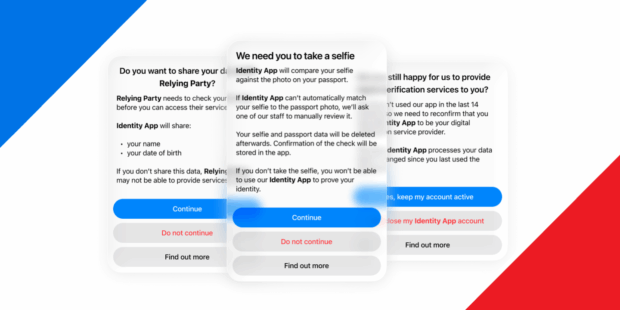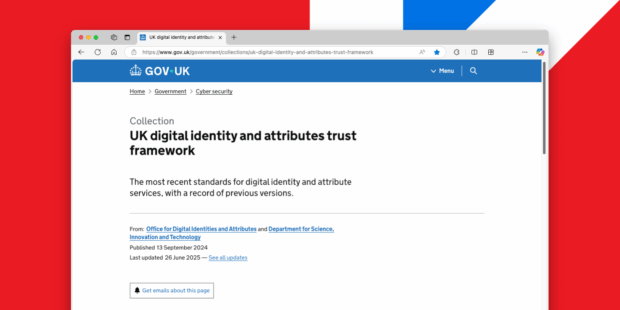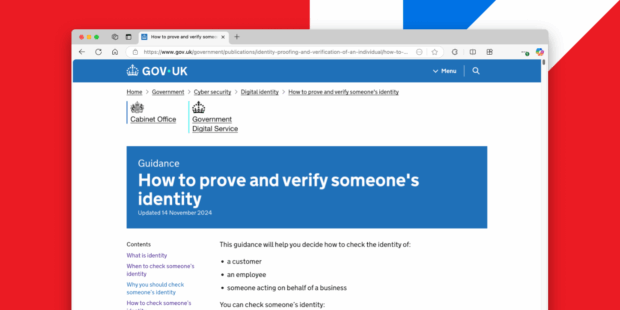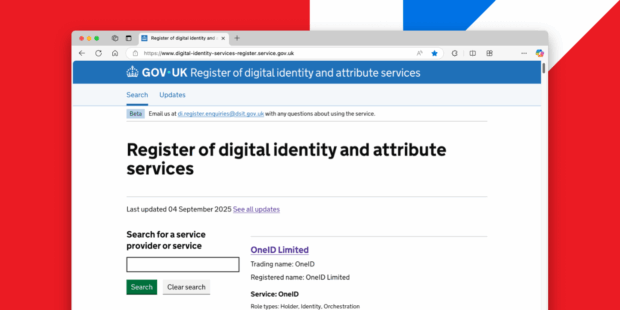DVS measures in the Data Act have come into force

The majority of the measures in Part 2 of the Data (Use and Access) Act 2025 have come into force today, 1 December 2025.
John works in the Office for Digital Identities and Attributes.

The majority of the measures in Part 2 of the Data (Use and Access) Act 2025 have come into force today, 1 December 2025.

We’ve been asked what a ‘good’ confirmation of user understanding, that meets the requirements of the trust framework, looks like.

The United Kingdom Accreditation Service (UKAS) has granted accreditation to Kantara Initiative; making it the first UKAS-accredited conformity assessment body (CAB) certifying under the UK government’s Digital Identity and Attributes Trust Framework.

If a Part or Section in the trust framework applies to your role, then all of the rules in that Part or Section apply to your service. Your service must conform with all of the “must” rules, and service providers can choose whether or not to implement any “could” rules.

Digital verification services sometimes want to use “data brokers” for this purpose and we’ve been asked how they should be treated.

You can avoid your service falling off the GOV.UK register by asking your conformity assessment body to complete your recertification process up to 60 days early. You won't lose the remaining time on your current certificate if you do this, and it will help you to avoid any unnecessary disruption.

Getting onto the GOV.UK register of digital identity and attribute services is not an automatic process. It can take up to 20 working days for your service to appear on the register.

We’ve been asked variously for some kind of document with a gap analysis or assimilation matrix. We don't have one. This is why.

You want to tell people that your service is certified and on the GOV.UK register of digital identity and attribute services. What should you say and what shouldn't you?

The gamma (0.4) publication of the UK digital identity and attributes trust framework introduces certification for "component services". You don't have to use certified components – but you'll probably want to.
The Office for Digital Identities and Attributes (OfDIA) is making it possible to use digital verification services across the UK economy.